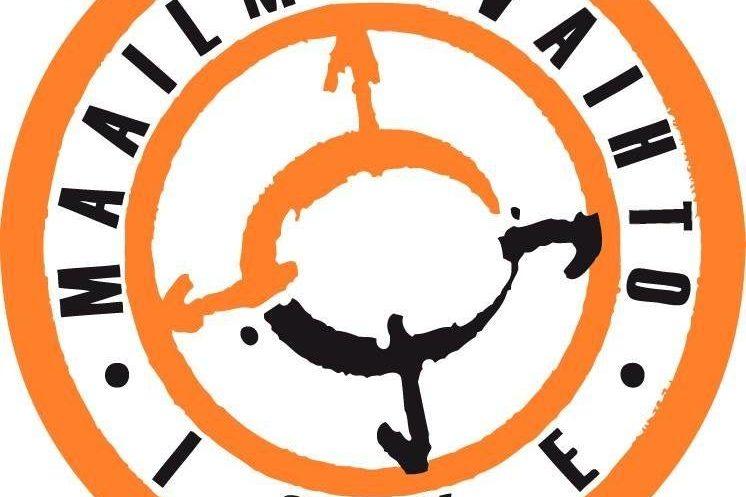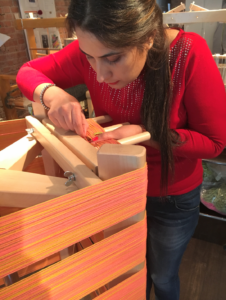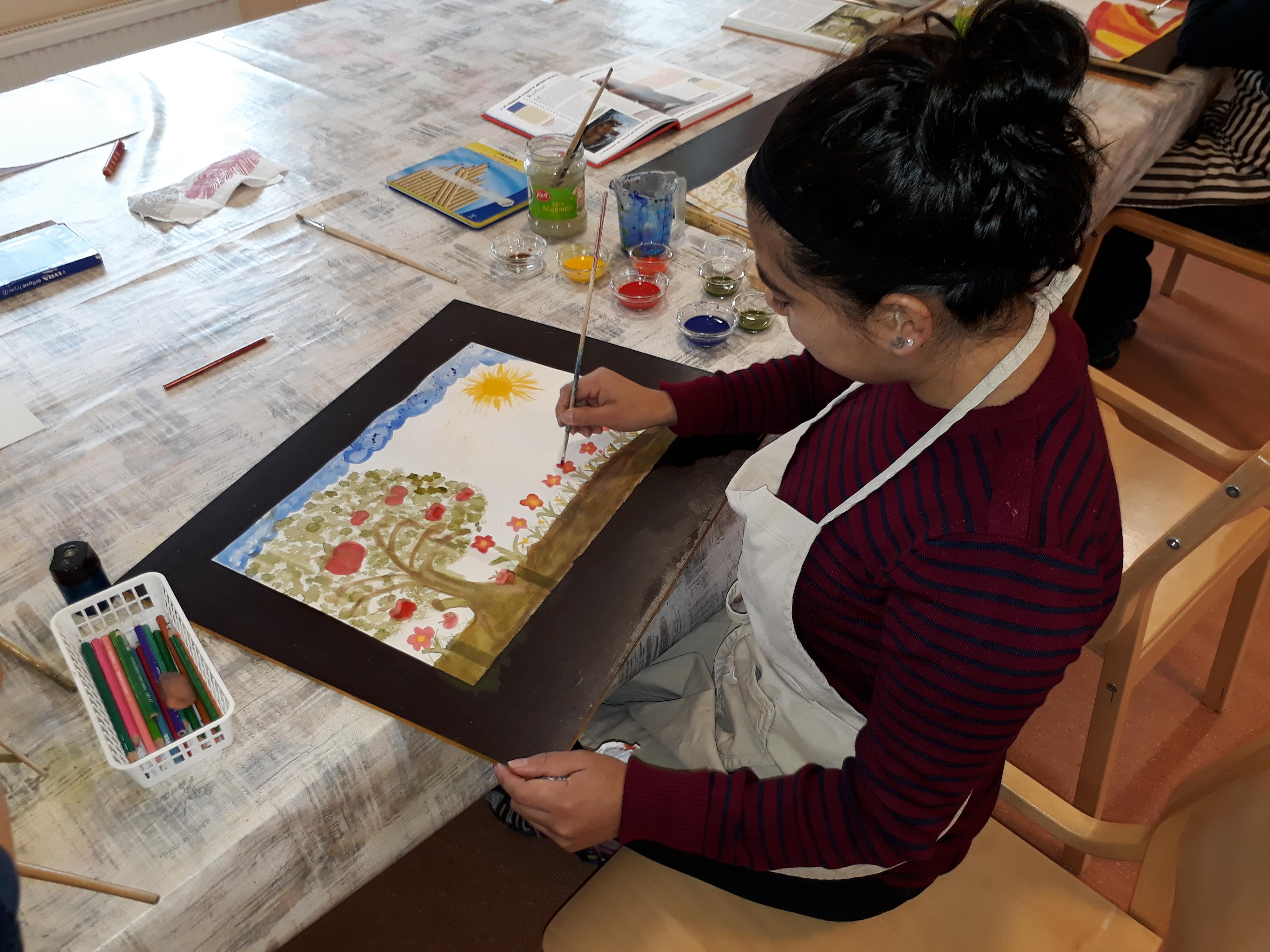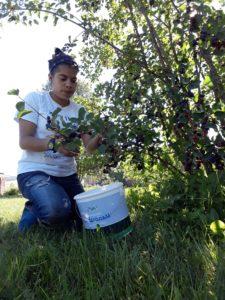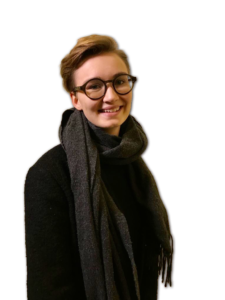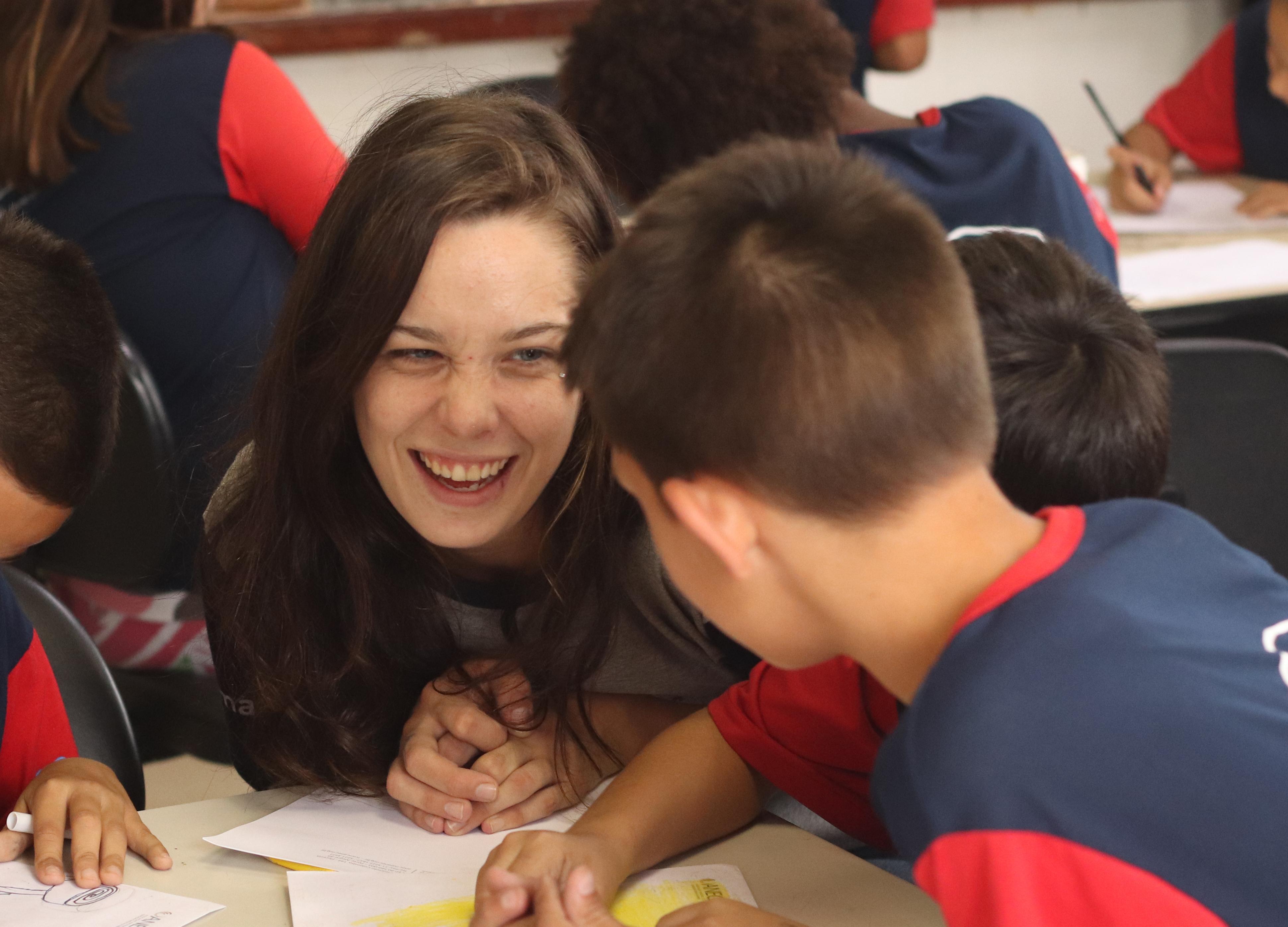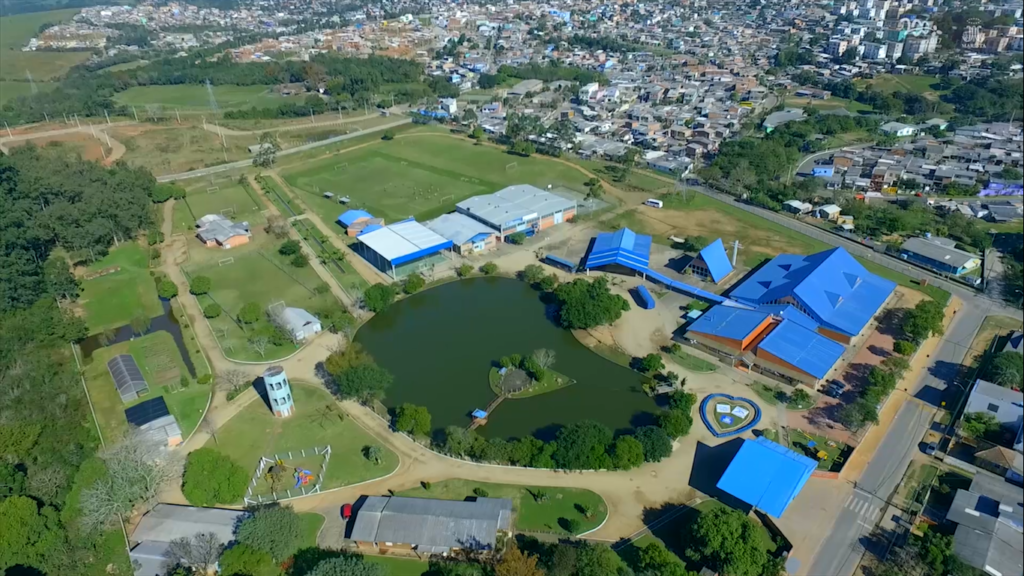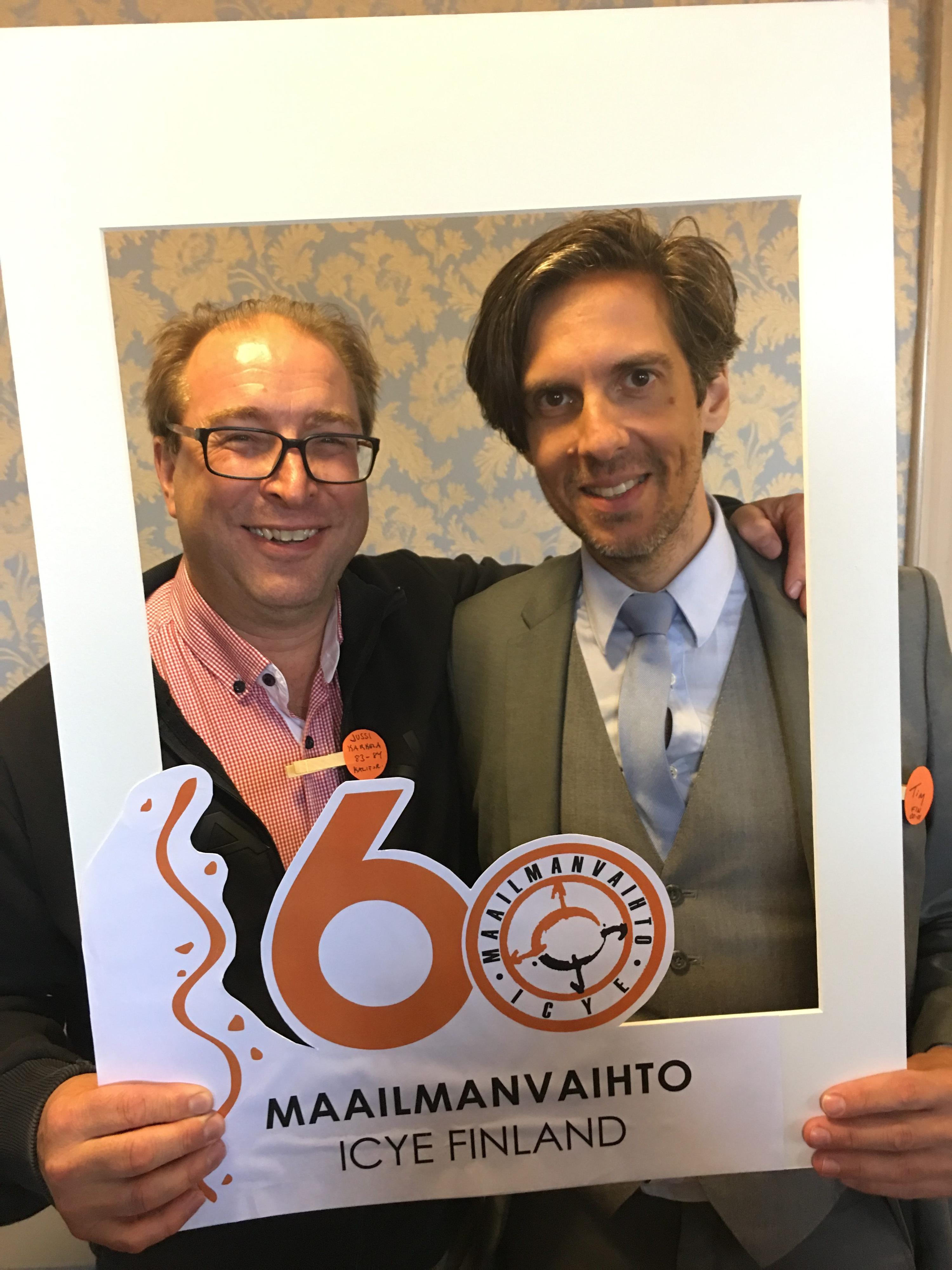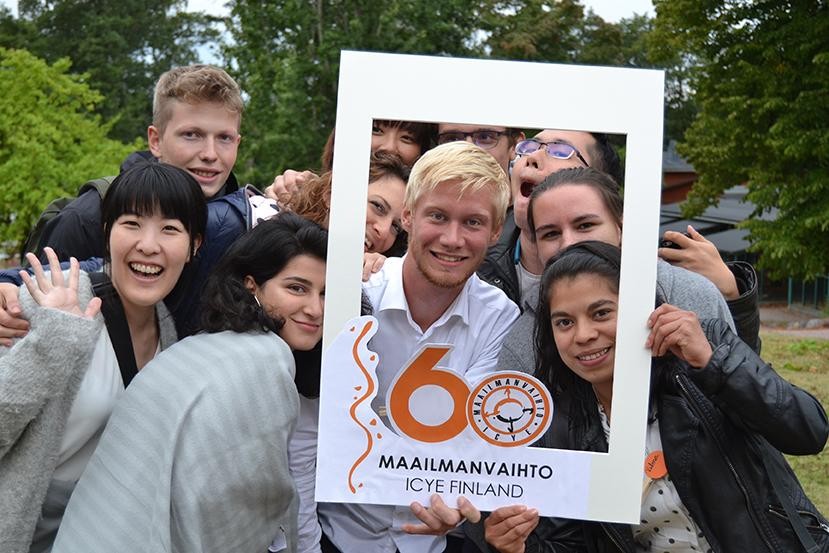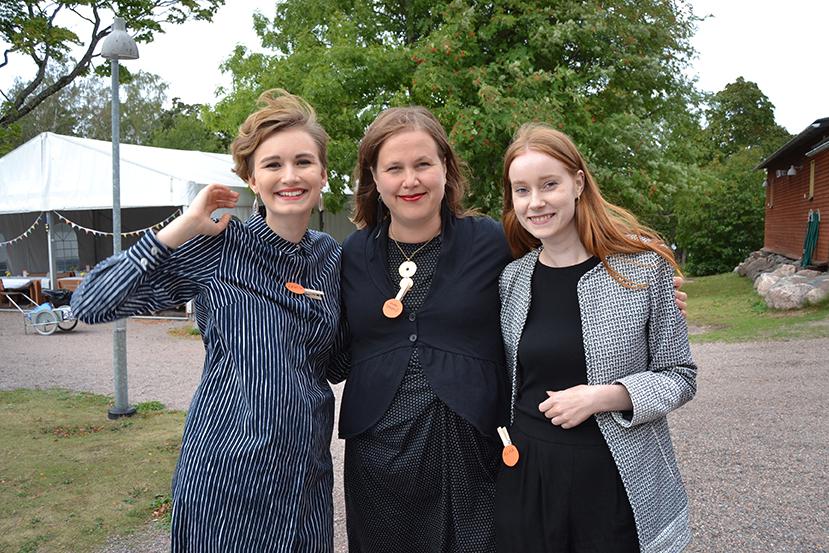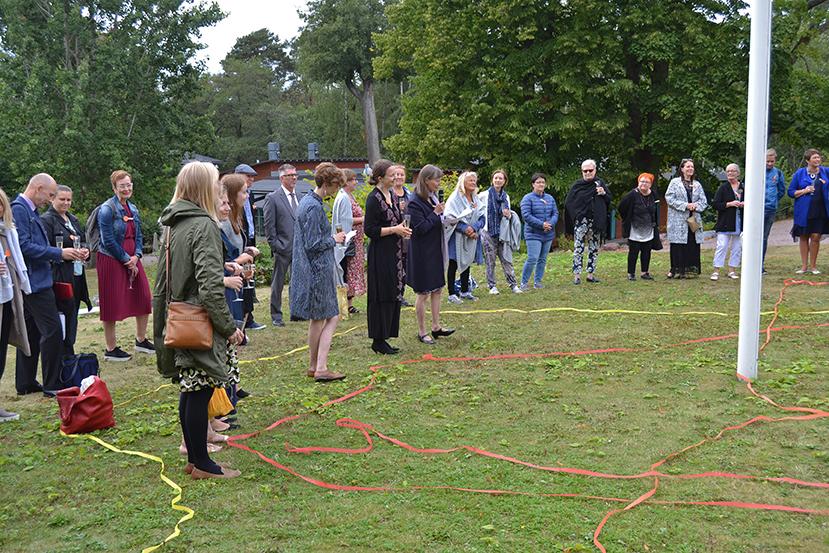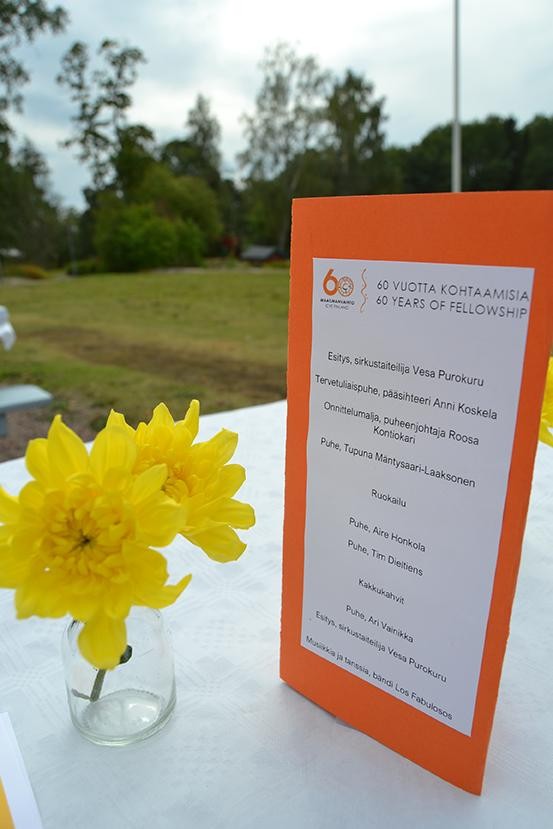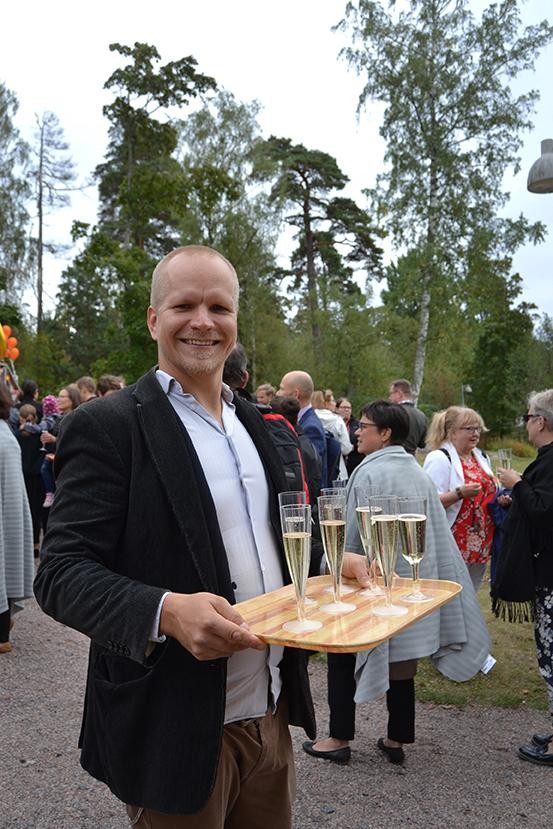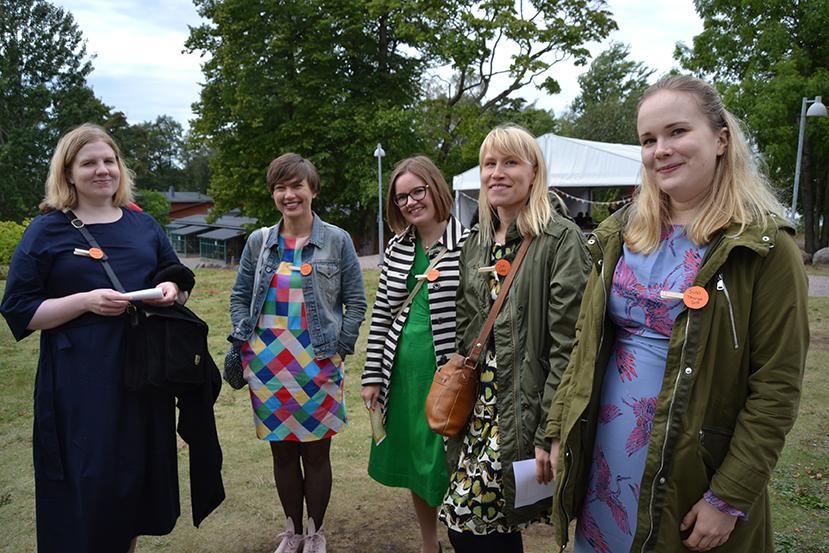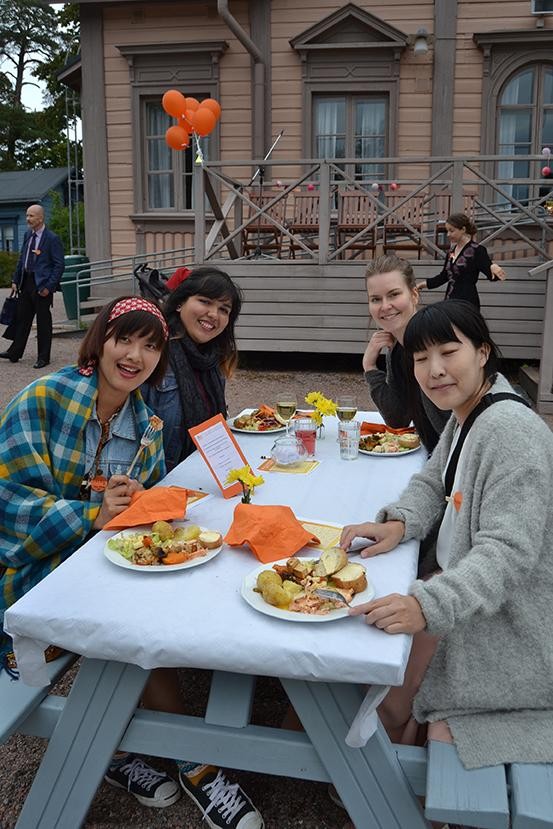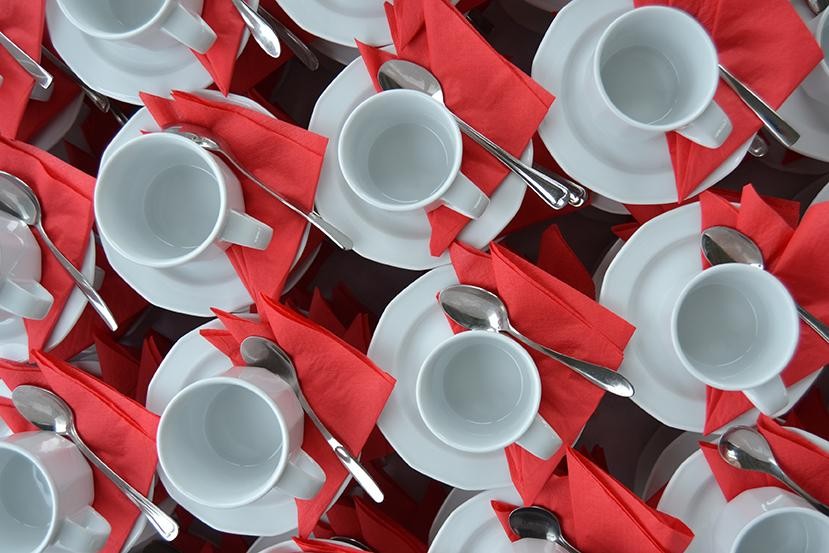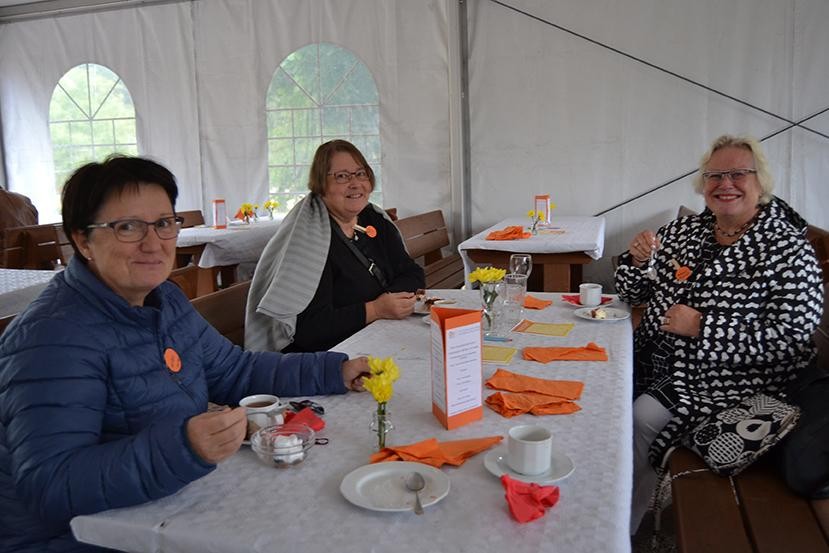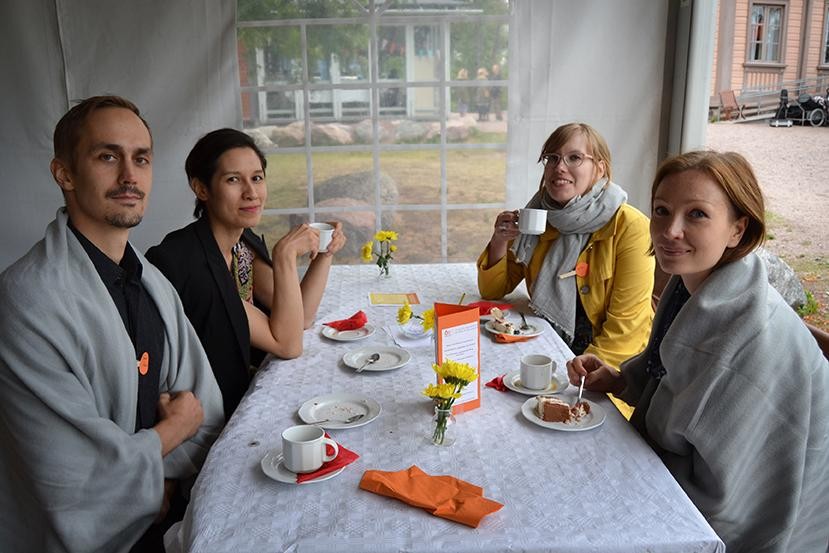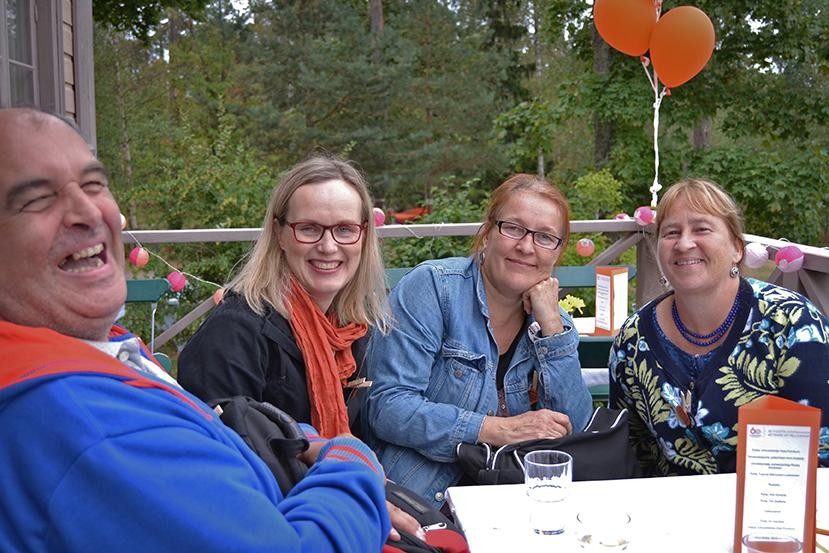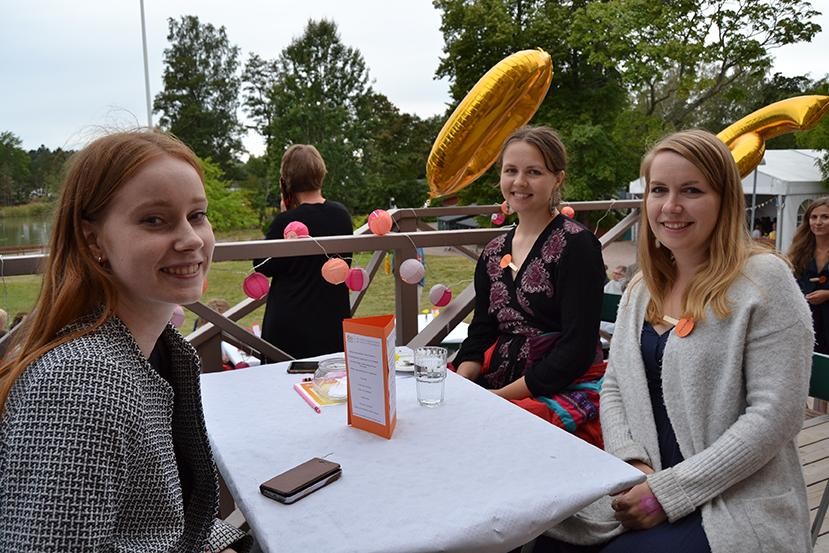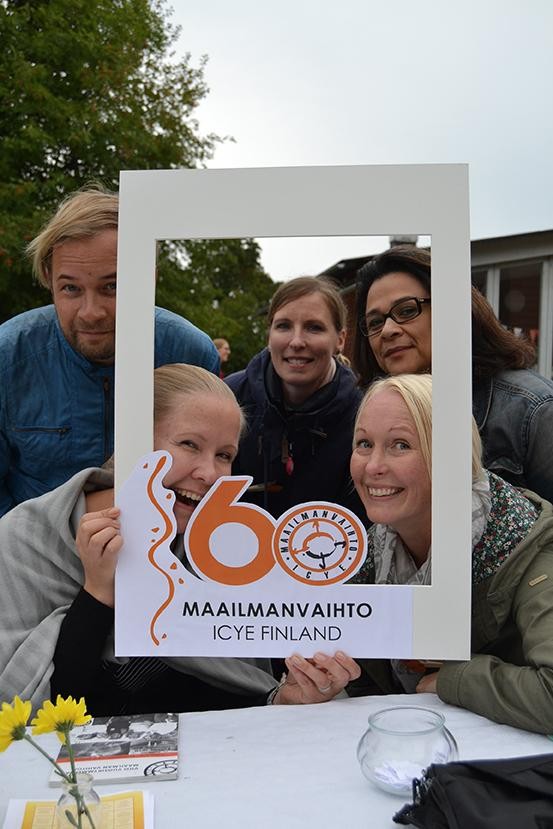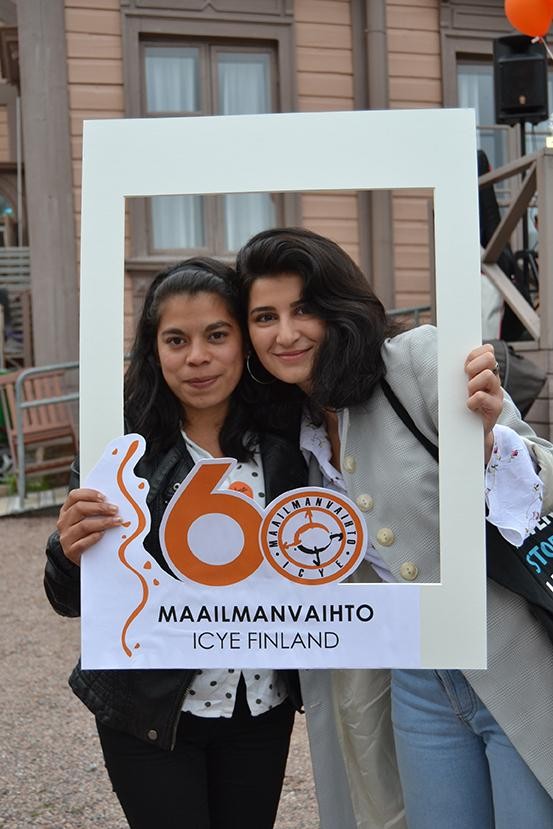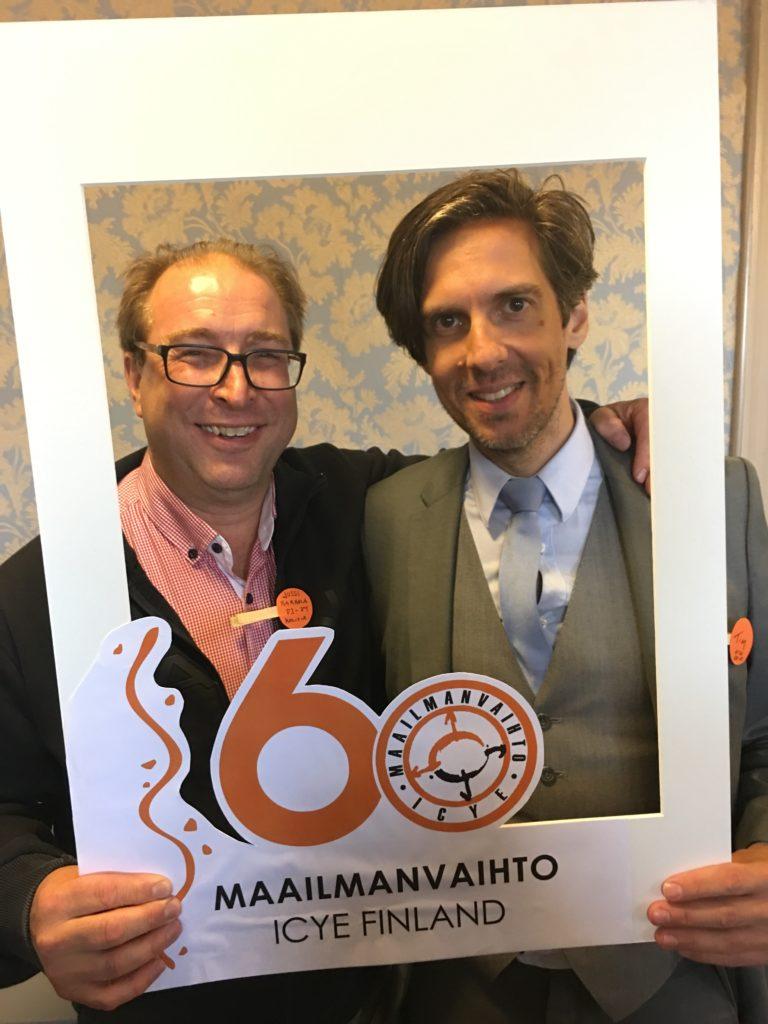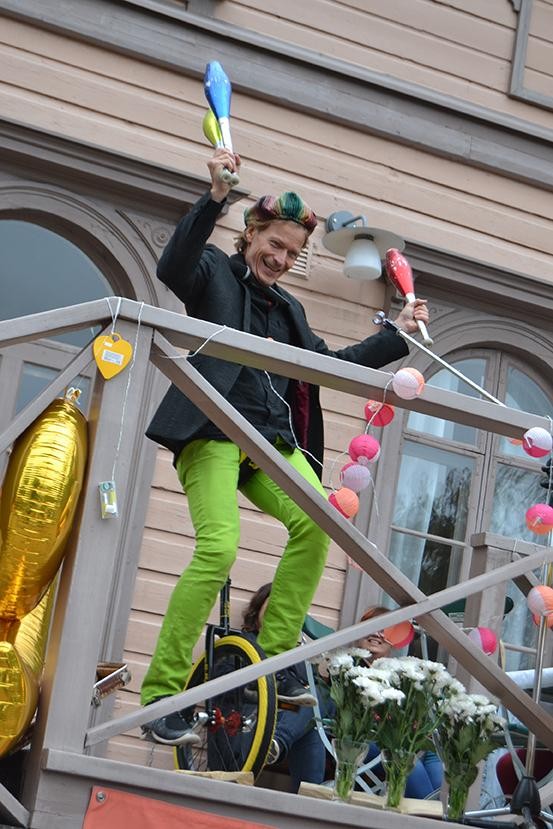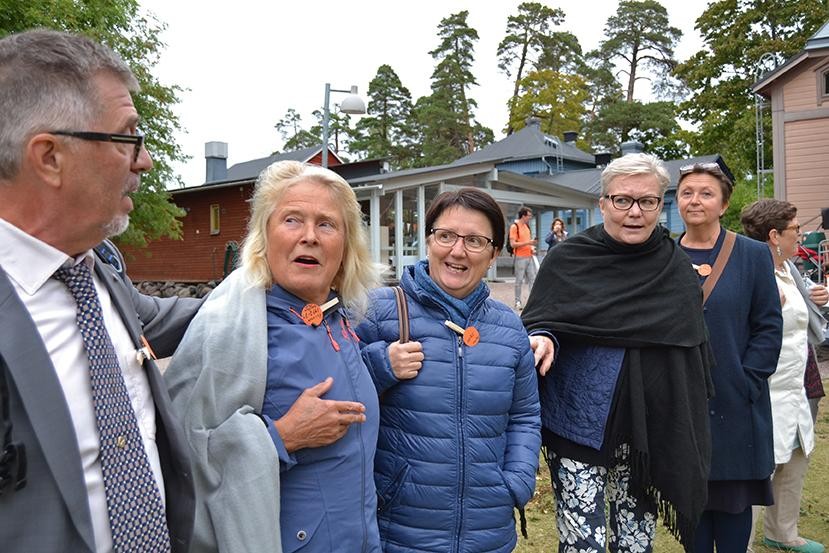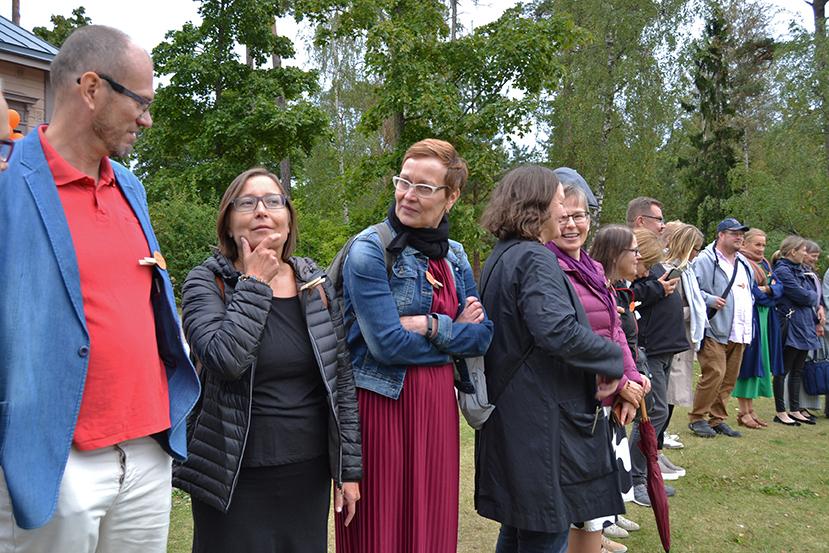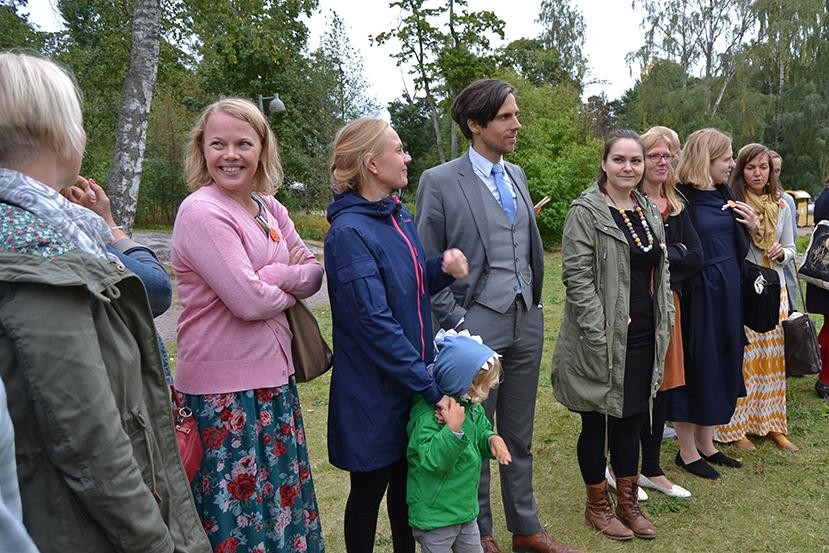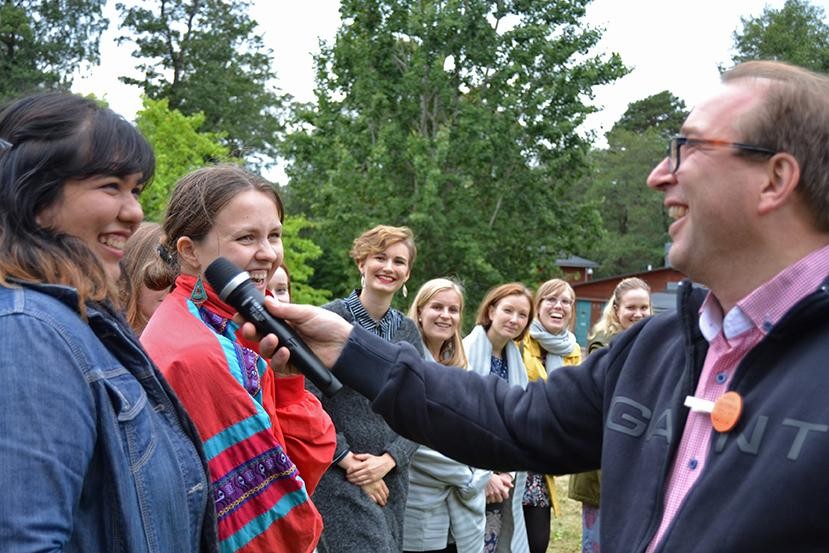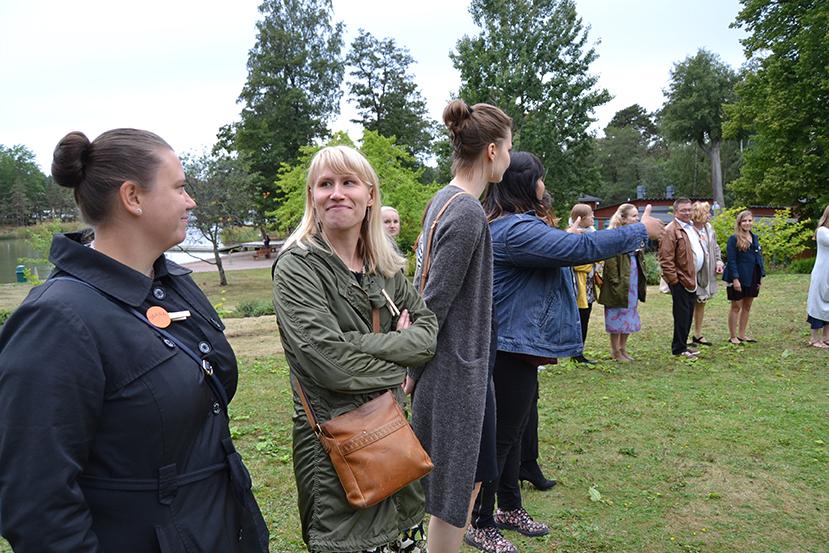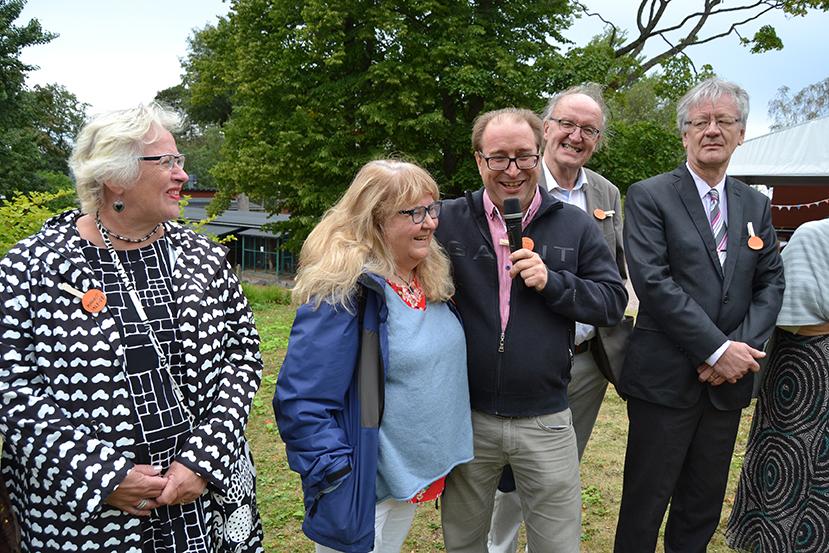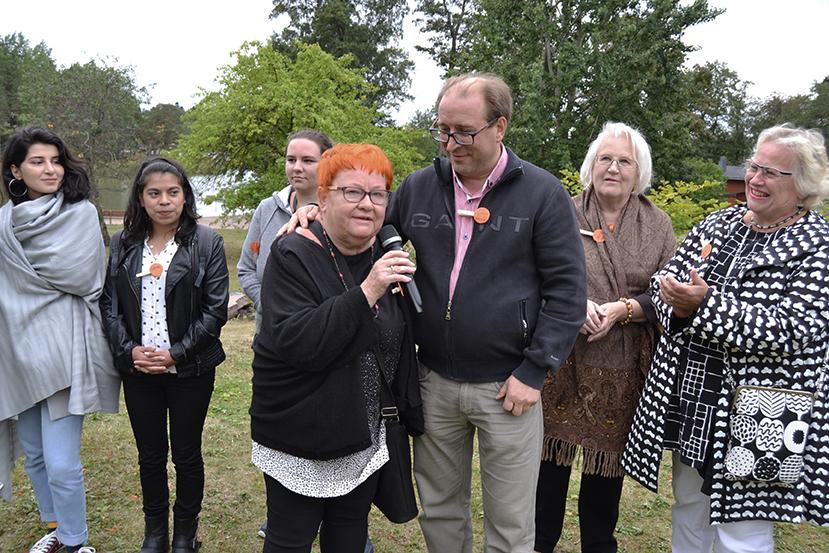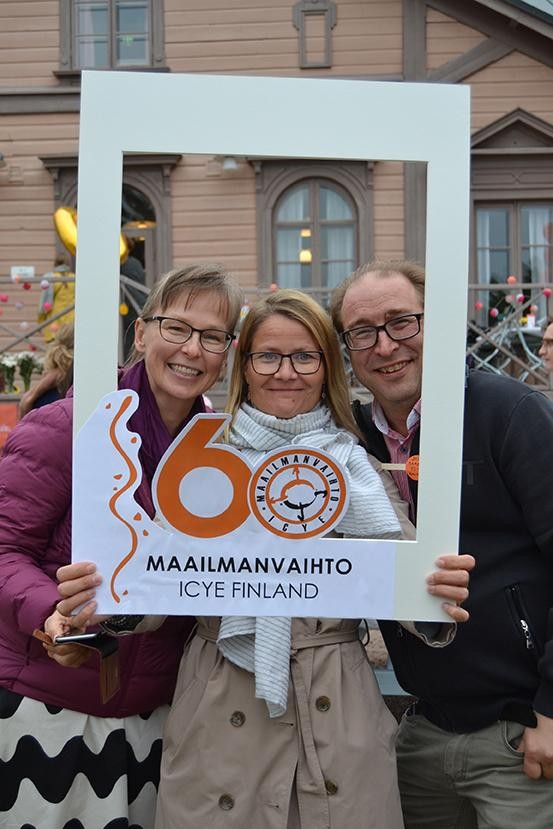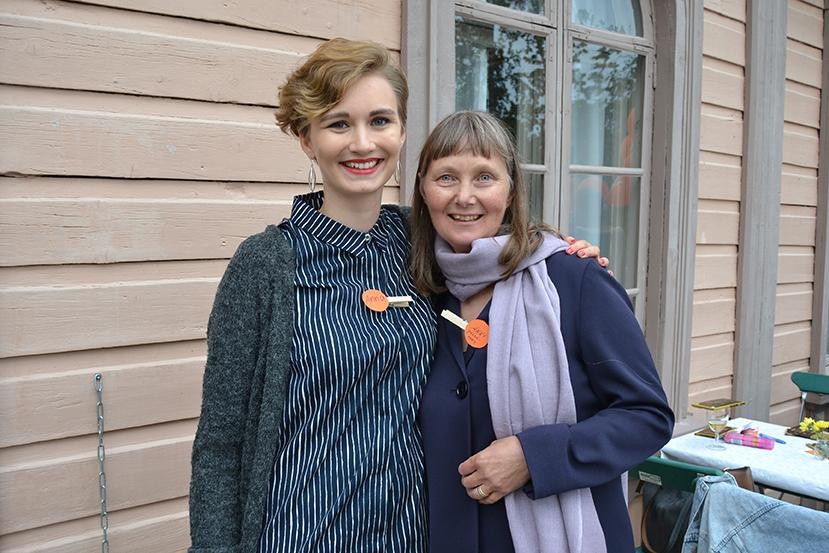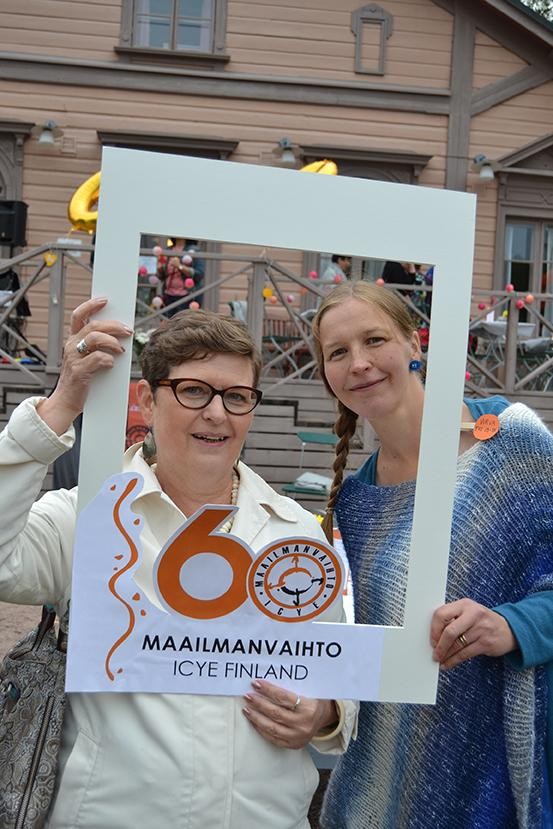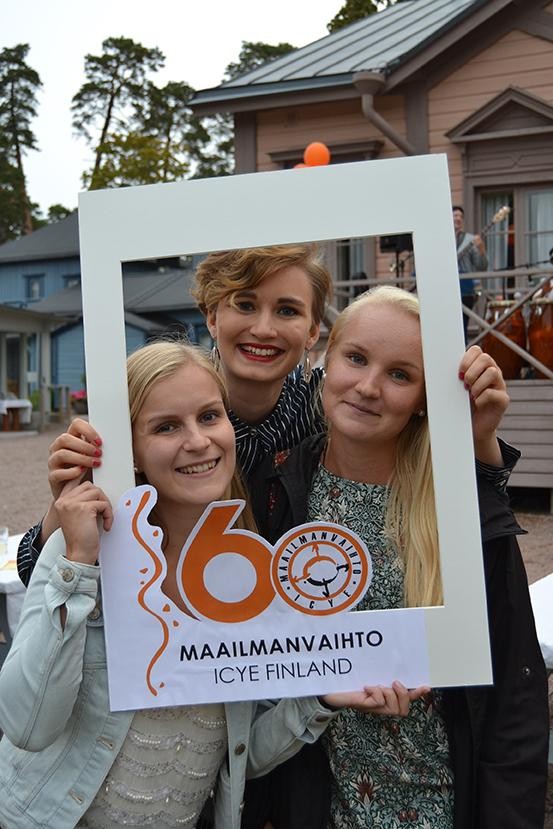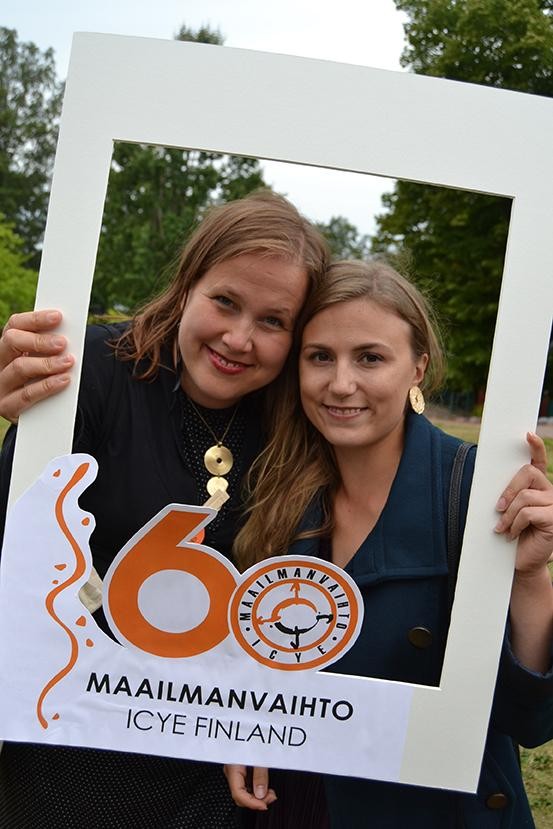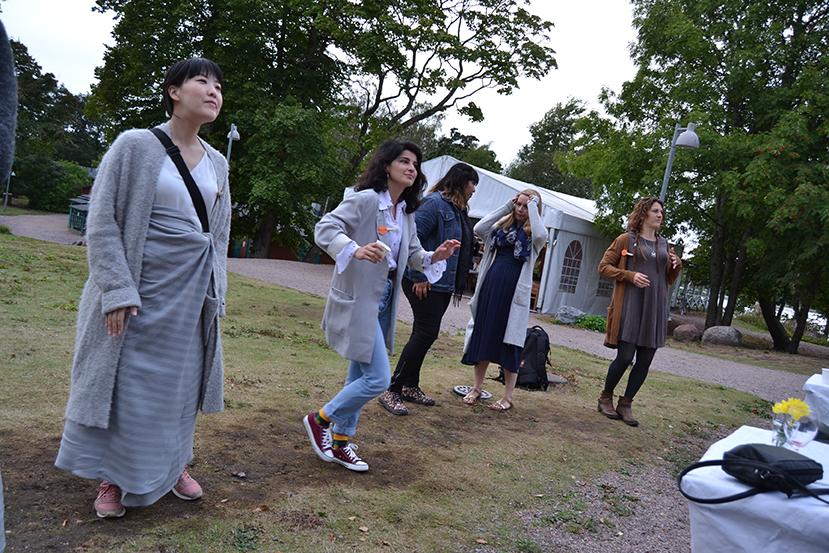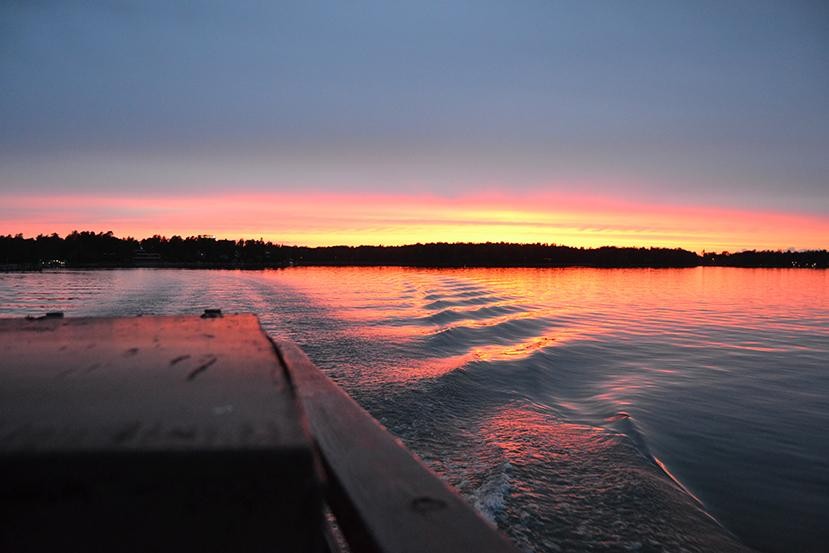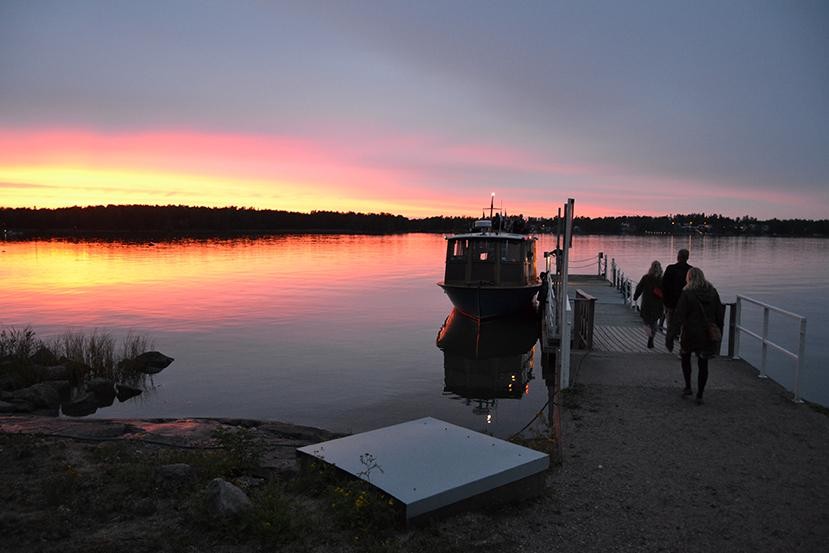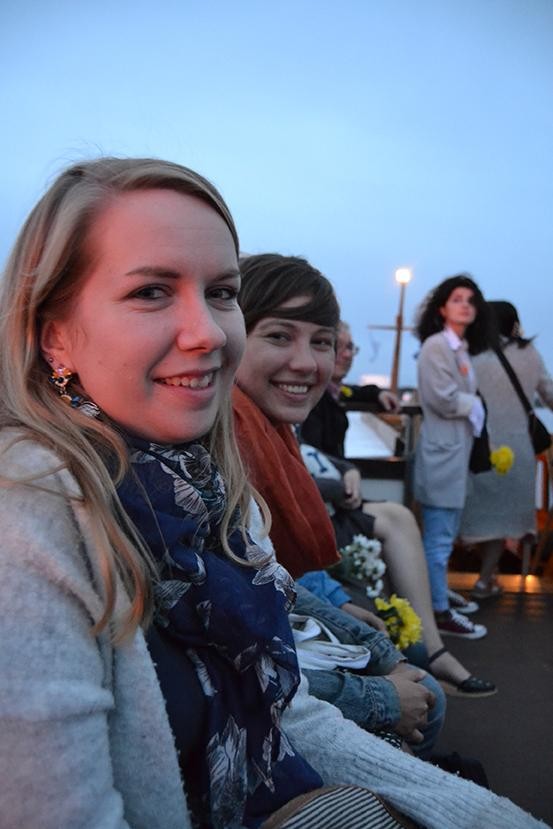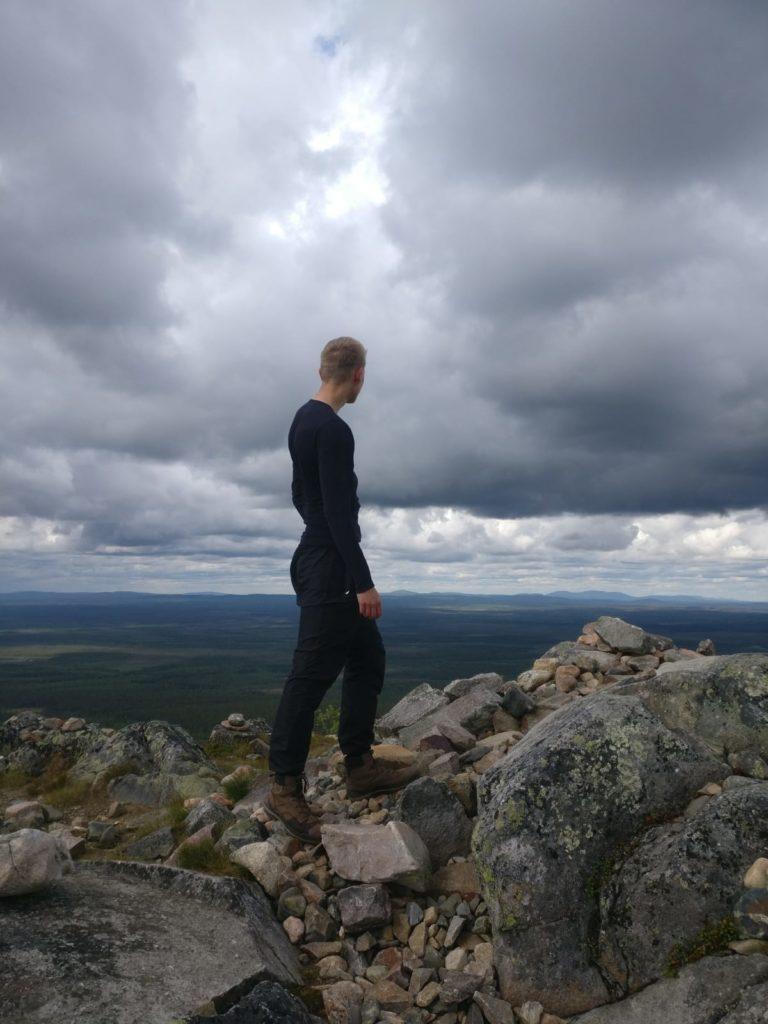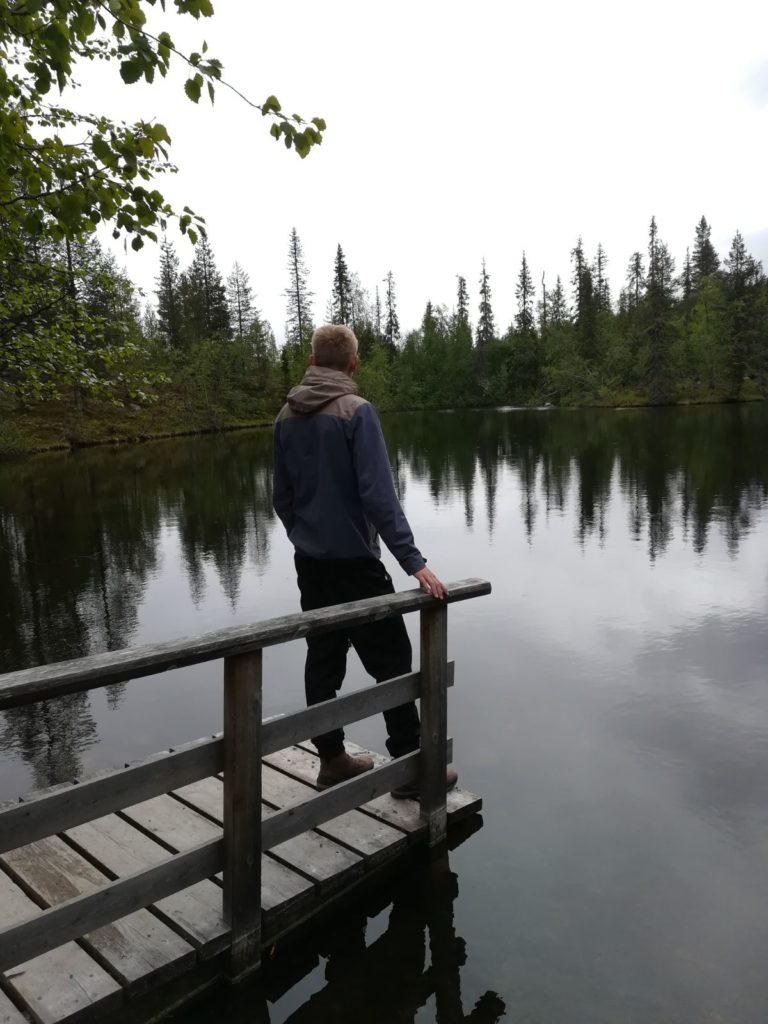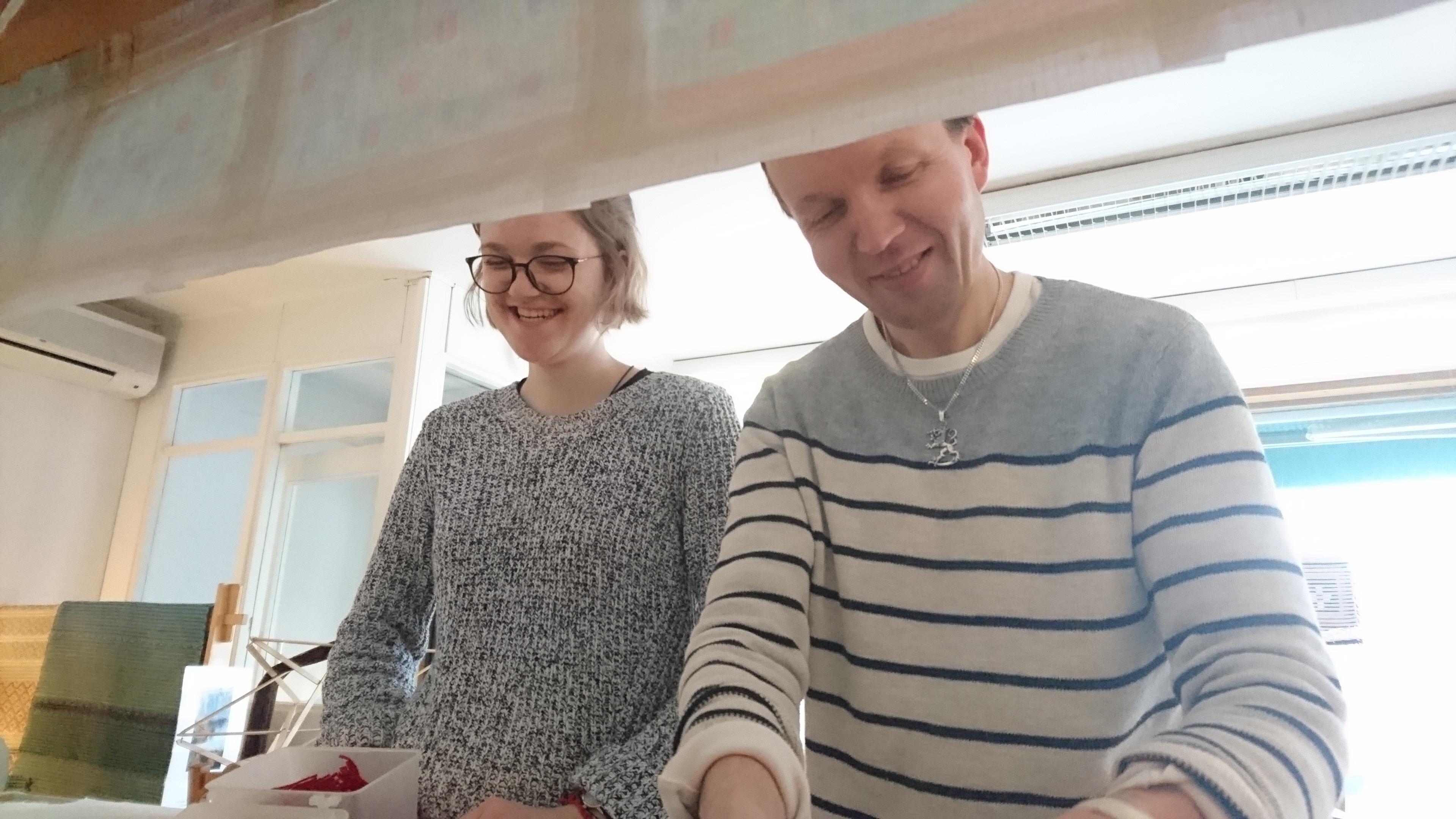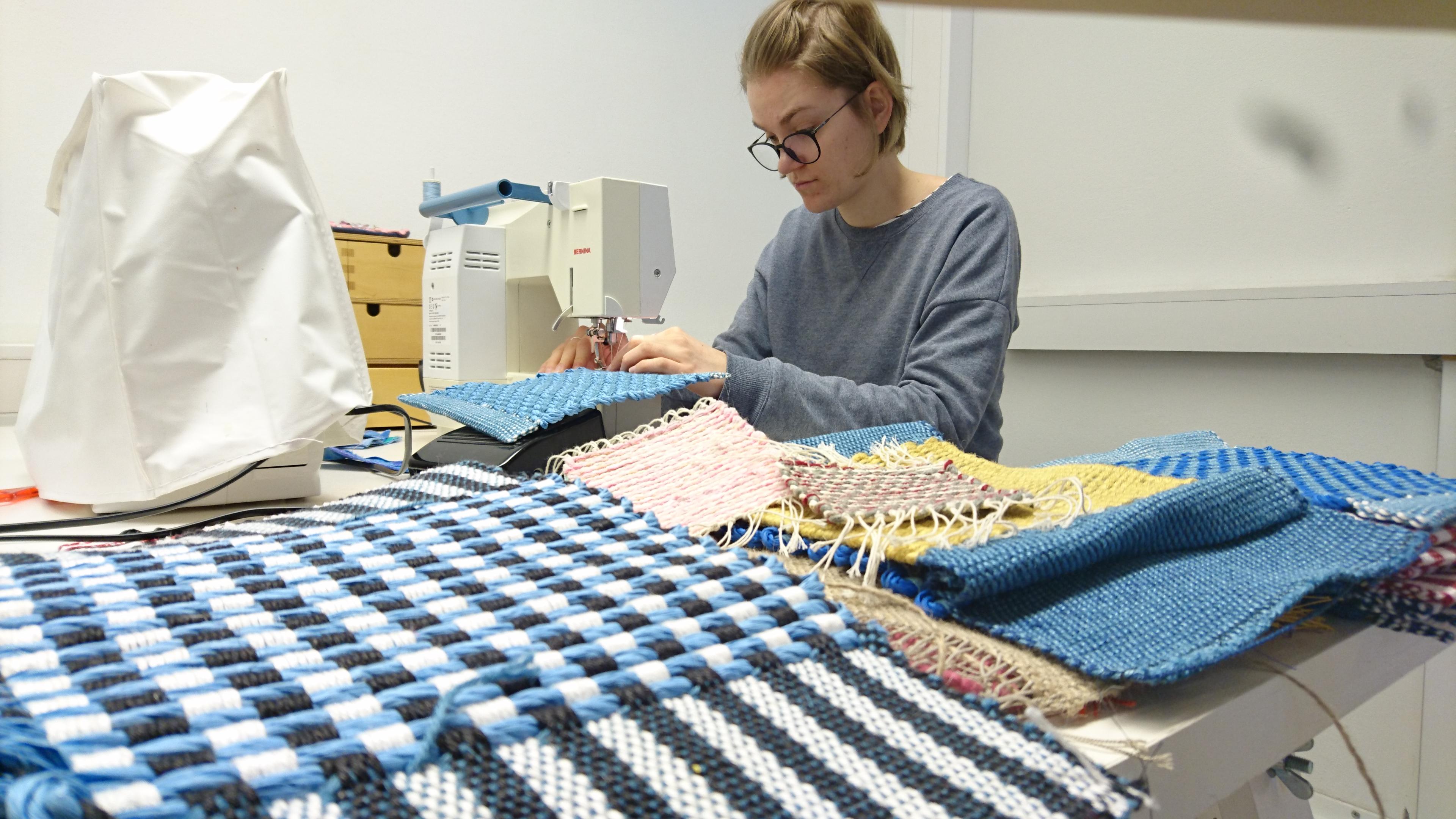The plan has been approved by the board of Maailmanvaihto 4th September 2024.
A pdf version of the plan is coming up soon!
Introduction
Maailmanvaihto organizes intercultural learning experiences for young adults and promotes their social growth and personal development. Maailmanvaihto advances intercultural understanding, equality, and peace in the world. Maailmanvaihto is a non-religious and politically independent NGO that conducts ethical international volunteer programs and global education work in Finland. The guiding values of Maailmanvaihto’s activities are intercultural learning, global responsibility, and equality, along with the principles of care and inclusivity, reliability, responsibility, and transparency. (Operating Principles.)
One of Maailmanvaihto’s guiding principles is to promote equality in all its activities. We aim to foster cooperation between people from different backgrounds and dismantle discriminatory thinking and structures. Our goal is to ensure that our activities are responsible, inclusive, and as widely accessible as possible to various groups, regardless of personal attributes. As a member of an international federation, Maailmanvaihto constantly seeks to increase its awareness of global power relations and its role within these structures, which are evident in the international, global North, and global South volunteer exchanges. Maailmanvaihto’s activities strive to challenge and dismantle colonial continuities and the stereotypes, prejudices, and discrimination based on them in society, creating a more equitable world.
Through equality planning, Maailmanvaihto puts the principle of equality into practice. The aim of equality planning is to ensure that Maailmanvaihto’s activities are responsible, safe, accessible, inclusive, and appreciative of diversity. This plan outlines the current state of equality planning within Maailmanvaihto’s activities, identifies issues, sets goals, and defines concrete actions to promote them. Maailmanvaihto’s board and staff are actively working to create a safer and more equitable foundation for Maailmanvaihto’s operations. The Equality Plan serves as a guiding document for our equality planning and is updated regularly.
Foundations of Equality Planning and Plan Update
Equity and Equality in Finnish Legislation
The foundation of Maailmanvaihto’s equality planning is Finnish legislation, where the principle of equality is defined through the prohibition of discrimination: No one shall be discriminated against on the grounds of age, origin, nationality, language, religion, belief, opinion, political activity, trade union activity, family relations, health, disability, sexual orientation, or other personal characteristics (Non-Discrimination Act 1325/2014 § 8). Equality planning is also guided by the Act on Equality between Women and Men, which prohibits different treatment and harassment based on gender, gender identity, or gender expression (Act on Equality between Women and Men 30.12.2014/1329 § 7).
Finnish equality legislation emphasizes the implementation of de facto equality, which means promoting equality through the active elimination of social inequality and discriminatory structures. Instead of formal equality, which means treating everyone the same, it is important to consider people’s status and opportunities and, if necessary, take special measures to promote de facto equality. Positive action through proportionate different treatment aims to improve the status and participation opportunities of people and groups facing discrimination. (Non-Discrimination Act 1325/2014 § 9; Yhdenvertaisuussuunnittelun+opas+suomi.pdf – yhdenvertaisuus.fi.) Promoting de facto equality is in the focus of Maailmanvaihto’s equality planning.
The 2018 Plan and the Current Situation
Maailmanvaihto’s first Equality Plan was approved at the autumn meeting on November 7, 2018, with the general aim of Maailmanvaihto being an equal and equitable actor and operating environment. The plan’s priorities are addressing and preventing cases of sexual harassment and discrimination within Maailmanvaihto’s activities; developing and establishing practices for special support and accessibility, as well as communicating about accessibility in connection with events; creating a safer space and considering diversity in all organizational activities. Other areas of focus in the plan include ethical and accessible communication, transparency and inclusiveness in operations and decision-making, equality in pay criteria, and financial accessibility for participants in the organization’s activities and volunteer programs. The plan also includes the establishment of an equality and non-discrimination officer and the annual update of the Equality Plan.
Since the 2018 equality planning, Maailmanvaihto has actively developed the equality of its activities and achieved goals set in the plan. The following describes the current state of equality planning at Maailmanvaihto by outlining the achievements according to the plan’s priorities and other areas of focus.
- Sexual Harassment and Discrimination Cases. An electronic form for reporting harassment and discrimination (Maailmanvaihto’s harrashment report form, along with procedures for handling harassment and discrimination cases (Guideline on the procedure in cases of harassment), has been developed and translated into English. The prevention, response, and support measures for sexual harassment have been addressed in training sessions for incoming and outgoing volunteers. Additionally, Maailmanvaihto has participated in the ICYE federation’s working group against sexual harassment and appointed a harassment contact person to handle harassment and discrimination cases.
- Special Support Needs and Accessibility. Accessibility information has been added to volunteer project descriptions and event announcements, and Maailmanvaihto’s advocacy efforts have led to including program suitability for different disability groups in the program descriptions of international ICYE partners. Maailmanvaihto has sent and received a disabled young person within the European Solidarity Corps framework and has explored good practices among organizations to increase inclusivity in international volunteering (Information guide on increasing inclusion in European Solidarity Corps volunteering – Google Docs). Alt text has been added to social media posts.
- Safer Space and Consideration of Diversity. Safer space principles (Guidelines for safer spaces within the activities of Maailmanvaihto – ICYE Finland) have been developed, published, translated, and implemented across all Maailmanvaihto’s activities. Gender-neutral language has been incorporated, especially in training in English, and feedback forms for training have been revised to assess participants’ experiences of equality and safety. Efforts have been made to consider linguistic equality and different language proficiency levels in the planning and implementation of training. Several board members and staff have attended equality training. Maailmanvaihto has also participated in the European youth and volunteer organizations’ Standing Together Against Racism in Europe project (STAR E – Standing Together Against Racism in Europe – icja.de) (Erasmus+ Strategic Partnership), which developed methods for anti-racist education and published two handbooks to support anti-racist training and a diversity-valuing organizational culture. Currently, Maailmanvaihto is involved in the ongoing international volunteer organizations’ Decolonise! project, which aims to understand and dismantle colonial power structures in the field of international volunteering (Decolonise IVS – ccivs.org). The project deepens understanding through participatory action research and develops a self-assessment tool for organizations (Decolonise IVS: Organizational Self-Assessment Tool – ccivs.org) and an online course to support pre-departure training for volunteers. Additionally, the project engages in advocacy work around international volunteering visa and funding issues and narratives (Decolonising Visa Mechanisms Policy Paper – ccivs.org; Decolonising EU Funding Mechanisms Policy Paper – ccivs.org; English-Decolonising-our-Narratives.pdf – ccivs.org).
- Communication. The accessibility of Maailmanvaihto’s communications has been critically assessed from an equality perspective, a quality description has been developed, and ethical guidelines have been implemented. Bilingual communication (Finnish and English) has been increased on social media and in member newsletters, as well as partially on Maailmanvaihto’s website and member magazine. Equality issues have been highlighted in communication, for example, through the “Promoting Equality in International Volunteering” theme in the magazine. Maailmanvaihto has also shared materials from other organizations on gender and sexual diversity on social media. Former male volunteers have been encouraged to participate in the organization’s communication work.
- Operational Transparency. Maailmanvaihto’s board decisions are communicated to those interested in the organization’s activities through the member magazine, newsletter, website, and social media, and members are encouraged to participate in the spring and autumn meetings.
- Pay Equality. The salaries of permanent employees are in accordance with the minimum salary recommendations for office work by the Erto Union. Interns are paid the minimum wage required by their educational institution.
- Financial Accessibility. Maailmanvaihto has emphasized coordinating and promoting the EU-funded ESC volunteer program. Remote activities have been developed and expanded from meetings to training, information sessions, and language cafés to ensure regional accessibility. School visits and mentoring activities have also been organized in smaller towns. Travel expenses for participants in Maailmanvaihto’s activities are reimbursed, and participation in training organized by external parties is financially supported.
Equality Survey 2023
In April and May 2023, Maailmanvaihto conducted an equality survey in Finnish and English to gather information about the experiences of those who have participated in or followed Maailmanvaihto’s activities regarding the organization’s equality, as well as to give them the opportunity to influence our equality planning. The survey was answered by a total of 27 people who have followed or participated in Maailmanvaihto’s activities, including volunteers, host families, or volunteer workplace representatives, members, and other activists. The survey sought feedback on Maailmanvaihto’s equality, particularly focusing on anti-racism, accessibility, and safety. Overall, Maailmanvaihto’s activities were perceived as strongly equal, anti-racist, appreciative of diversity, and safe. The activities were also largely seen as accessible, though less unanimously.
The respondents appreciated Maailmanvaihto’s equal, open, and caring atmosphere, where everyone can be themselves and each representative of the diverse participant group is treated equally and respectfully. The organization’s activities were perceived as promoting the understanding of different perspectives and being inclusive, which was seen as particularly important in the current global situation. The survey’s implementation and efforts to improve the organization’s accessibility were also viewed positively.
The survey results also highlighted areas for the development of Maailmanvaihto’s equality. Both the group of volunteers going abroad from Finland and those involved in the organization’s in-country activities were seen as relatively homogeneous, underscoring the importance of examining the organization’s accessibility. Attention was also drawn to the financial accessibility of volunteer programs and the possibilities for support for disabled and vulnerable participants. Similarly, improving the accessibility of Maailmanvaihto’s office and event venues was seen as an area for development. There was also a wish to involve international volunteers in Finland as actors in the organization’s work. The work to develop safer and more inclusive spaces must continue in all Maailmanvaihto’s activities, for example, through the use of inclusive language and consideration of gender diversity. Similarly, the work on decolonizing international volunteering and continuing the critical evaluation of Maailmanvaihto’s activities, as well as acquiring knowledge and skills to improve equality, must be advanced. Collaboration with experts and organizations representing marginalized groups was also seen as important for developing the organization’s expertise and accessibility. This valuable feedback from the survey has been considered in Maailmanvaihto’s equality planning and in shaping the priorities of the Equality Plan.
Equality in Maailmanvaihto’s Strategy
In Maailmanvaihto’s strategy for 2022-2027 (Maailmanvaihto – ICYE Finland’s strategy 2022–2027), equality is reflected as a cross-cutting principle in all areas of operation. The strategy emphasizes inclusivity, anti-racism, consideration of participants’ individual needs, as well as openness and transparency. The strategy aims to strengthen inclusivity by facilitating the participation of individuals from different backgrounds, continuing anti-racism work, and developing anti-racism expertise. The strategy is regularly reviewed by Maailmanvaihto’s board.
Equality Planning Priorities, Principles, and Actions
This plan outlines three priorities: 1. anti-racism and appreciation of diversity, 2. accessibility and inclusion, and 3. safer spaces. In addition to these priorities, the plan defines three cross-cutting principles that guide Maailmanvaihto’s equality development and, more broadly, all our work: 1. sustainability and social responsibility, 2. intersectionality, and 3. inclusivity.
Priority 1: Anti-racism and Appreciation of Diversity
Anti-racism is active work that aims to oppose and dismantle racism in society, from discriminatory structures to attitudes and stereotypes (Antirasistinen sanasto – Monikulttuurinen.fi; Sanasto – Fem-R). Maailmanvaihto’s activities bring together people from different cultural and linguistic backgrounds and life situations, where power dynamics and often prejudices are present in these encounters. As an organization, Maailmanvaihto navigates societal structures in both Finland and as part of an international federation, and in both these contexts racist structures exist. Maailmanvaihto actively engages in anti-racism work by being aware of the power positions of the organization and its different actors, continuously evaluating and developing all its activities to be more anti-racist, and dismantling racist prejudices, attitudes, and perceptions through its communication and educational work.
Maailmanvaihto sees the appreciation of diversity as central to opposing racism and discrimination. Maailmanvaihto’s activities respect and value the individuality and diversity of its participants and aim to support the participation of all interested individuals. Encounters and interaction among different people in our activities promote the dismantling of discrimination and prejudice, as well as the acceptance and appreciation of diversity. The appreciation of diversity is also reflected, for example, in our efforts to use inclusive language and be sensitive to the diversity of cultures, religions, bodies, gender, and sexual orientation. We hope that everyone can feel seen and heard in our activities, and we recognize the importance of the representations we convey in our communication.
Actions: We will continue to critically examine our activities by, for example, participating in the decolonization project of international volunteering and incorporating its outcomes and learnings into our work. We will explore ways to make our activities more accessible to a more diverse group of participants, with a particular focus on receiving vulnerable applicants within the ESC program in Finland.
We will develop our training and camps to be more anti-racist and appreciative of diversity by working on educational materials, a competence map, and a volunteer guide towards a more intersectional and decolonial direction. We will talk about anti-racism and explain our values in our camp workshops to develop our volunteers’ anti-racist thinking and actions. We will promote the agency of international volunteers in Finland by involving them in our training, for example, as camp leaders, and organizing joint activities with volunteers going abroad from Finland. Cultural perspectives are strongly linked to our training work, but we aim to address the theme in ways that dismantle stereotypes and prejudices and emphasize a transcultural and decolonial approach.
In our communication, we will highlight collaboration, community, learning together, understanding, and appreciation among diverse people in Maailmanvaihto’s activities. Attention will be given to the visibility of diversity and the agency of marginalized groups when creating content. We will highlight both nationwide and our own anti-racism and diversity appreciation projects and campaigns and participate in them. We will follow and share information and materials related to anti-racism from other actors. We strive to ensure that our communication reflects and amplifies the voices of the entire ICYE federation, especially our global South and non-European partners. We will critically examine the vocabulary and imagery we use and update our inclusive communication checklist.
Priority 2: Accessibility
Accessibility refers both to considering the diversity of people in designing and implementing the physical environment so that it does not differentiate people based on their ability to function; and considering diversity, for example, in planning communication, information, and activities, but also in the values, attitudes, and equality of the operational environment (Esteettömyys – invalidiliitto.fi; Saavutettavuus – invalidiliitto.fi). Maailmanvaihto strives to remove barriers to participation and make it possible and easier for all interested individuals to participate in our activities, if necessary, through special support and positive action. Our goal is for everyone to have as equal opportunities as possible to participate, regardless of ability, language skills, or socio-economic background.
Actions: We will increase our knowledge of implementing accessibility and inclusion in our work and explore collaboration opportunities with knowledgeable partners. We will support the participation of individuals requiring special support in international volunteering through the ESC program. We will strive for continuous, long-term collaboration with inclusive volunteer workplaces to facilitate and routinize the reception of volunteers requiring special support. We will continue to work with our partner organizations to send volunteers requiring special support abroad and will address the interviewing of applicants requiring special support in our selection training. We will encourage young people to contact us with their requests regarding accessibility and inclusion and inform them about the support provided by the volunteer programs in this regard.
We will improve the financial accessibility of our volunteer program by intensifying communication about the funded ESC program. We will explore possibilities for financial support for volunteers through employment offices and ethical business partnerships. To improve regional accessibility, we will participate in events across Finland and aim to increase activities outside the Helsinki metropolitan area to enhance the participation opportunities of international volunteers in Finland. We strive to make our activities more inclusive and accessible and diversify our administration, for example, by switching the language of our board meetings to English.
We will consider accessibility when selecting event venues and, if necessary, also in the facilities for training camps from the perspective of mobility and sensory impairments. We will communicate about accessibility in event and training camp invitations and ask camp participants to fill out a preliminary information form where they can share their wishes and needs related to their identity, health, or language skills. We will continue to explore ways to improve the accessibility of Maailmanvaihto’s office.
Accessibility in communication involves both technical and content aspects, such as the use of content with assistive technology and its clarity and comprehensibility. We strive to use clear language in our communication and provide information comprehensively in both Finnish and English. We will also explore the need for an English-language newsletter and ensure that the information on our Swedish-language website is up-to-date and sufficient. We will assess the need and possibilities for, among other things, sign language interpretation and audio description at communication events and improve the clarity of our communication by using infographics, for example. We will continue to develop our communication to be more accessible and inclusive by assessing our knowledge, continuously evaluating our work, and soliciting feedback from participants in our activities. We will continue our communication collaboration with Ohjaamo centers and explore best practices such as opportunities for visits and communication collaboration, cooperation with youth workshops, and outreach youth work.
Priority 3: Safer Space
Maailmanvaihto aims to create an atmosphere and environment in all its activities where everyone feels welcome as they are and can participate actively on their terms. We recognize that creating a completely safe and discrimination-free space is an ongoing process, supported by our safer space principles. These principles guide our work and are introduced to everyone participating in our activities to prevent discrimination and harassment at events, training, camps, and on our website. The goal is to get people to proactively consider their position and behavior and involve everyone in ensuring a safer space. Maailmanvaihto seeks to create an atmosphere where experiences of discrimination and harassment can be reported with low barriers and they are addressed with the consent of the person who experienced discrimination or harassment.
Actions: We will regularly review and update our safer space principles and continue to make them visible and implemented in our activities. We will ensure that the principles are systematically included in our guides and other materials. In addition to the principles, we will develop guidelines and information on handling conflict situations in our activities. We will also evaluate the functionality of the harassment reporting form implemented on our website.
We strive to use sensitive and inclusive language and methods in our training and be aware of our (power) positions as the training organizer. We will not make assumptions about participants’ identities or backgrounds and will consider diversity in both the planning and practical arrangements of the training (e.g., restrooms, washing facilities, and sauna shifts). We recognize that the topics we address, such as racism and discrimination, may be personal for some participants and evoke emotions, and we will provide them with the opportunity to withdraw or receive discussion support. Each training and event will have a designated harassment contact person who can be approached in harassment situations.
Principle 1: Sustainability and Social Responsibility
It is important to us that our activities are ethical, responsible, transparent, and long-term. As part of the ICYE federation, we invest in long-term, equitable collaboration with our partner organizations and continuous quality improvement, for example, in the federation’s various working groups and other collaboration projects. We are aware of our (power) positions in the field of international volunteering and strive to dismantle colonial continuities. Through our federation structure, we aim to prevent potential harmful impacts of volunteer programs both globally and in local communities and invest in sustainable activities by coordinating only long-term volunteer work, where volunteers are trained before, during, and after the program. Our sustainable thinking also considers our environment, and we are working to improve the ecological sustainability of our activities by updating our environmental plan.
Principle 2: Intersectionality
An intersectional perspective recognizes and considers how different aspects of an individual’s identity, such as gender, sexual orientation, and social class, affect their position in society and experiences of overlapping forms of discrimination (Sanasto – Fem-R; Antirasistinen sanasto – monikulttuurinen.fi). In its work, Maailmanvaihto strives to be aware of and consider the diversity of identities and the intersections of different social positions and to dismantle the discriminatory structures encountered in them.
Principle 3: Inclusivity
Inclusivity refers to an inclusive approach that transforms discriminatory, unequal structures into ones that support equality. Simply offering the same to everyone equally is not enough; actions are needed for active inclusion. Inclusivity involves actions that support equality and a culture that values diversity, aiming to involve people on their own terms. (demos_helsinki_digitaalinen_inklusiivisuus_web.pdf – demoshelsinki.fi.) Maailmanvaihto strives for an inclusive organizational culture where everyone has equal opportunities to participate.
Communicating and Maintaining the Plan
The contents of the Equality Plan will be presented to all board members and office team members during orientation. Its contents and requirements will also be incorporated into the introductory materials for volunteers, volunteer workplaces, host families, and other active participants. The plan will be published on Maailmanvaihto’s website and communicated in the organization’s member magazine and social media channels.

